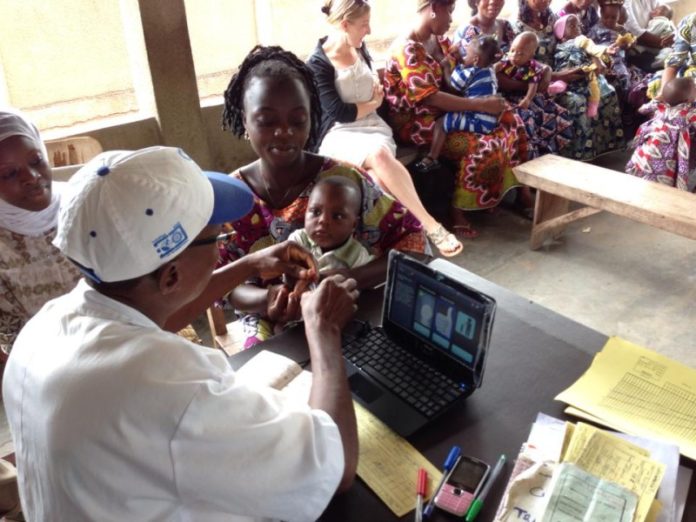
Each year 2.5 million children die worldwide because they do not receive life-saving vaccinations at the appropriate time.
Anil Jain, Michigan State University professor, is developing a fingerprint-based recognition method to track vaccination schedules for infants and toddlers, which will increase immunization coverage and save lives.
To increase coverage, the vaccines must be recorded and tracked. The traditional tracking method is for parents to keep a paper document. But in developing countries, keeping track of a baby’s vaccine schedule on paper is largely ineffective, Jain said.
“Paper documents are easily lost or destroyed,” he said. “Our initial study has shown that fingerprints of infants and toddlers have great potential to accurately record immunizations. You can lose a paper document, but not your fingerprints.”
Jain and his team traveled to rural health facilities in Benin, West Africa, to test the new fingerprint recognition system. They used an optical fingerprint reader to scan the thumbs and index fingers of babies and toddlers. From this scanned data, a schedule will be created and become a part of the vaccine registry system.
Once the electronic registry is in place, health care workers simply re-scan the child’s fingers to view the vaccination schedule. They know who has been vaccinated, for what diseases and when additional booster shots are needed.
These new electronic registry systems will help overcome the lack and loss of information, which is the primary problem in the vaccine delivery system in third world nations, Jain said.
Collecting fingerprints from fidgety infants is not easy. Another challenge is their small fingerprint patterns have low contrast between ridges and valleys.
“The process can still be improved but we have shown its feasibility,” Jain said. “We will continue to work on refining the fingerprint matching software and finding the best reader to capture fingerprints of young children, which will be of immense global value. We also plan to conduct a longitudinal study to ensure that fingerprints of babies can be successfully matched over time.”
There will be other benefits in addition to tracking vaccinations, said Mark Thomas, executive director of VaxTrac, a nonprofit organization supporting Jain’s research.
“Solving the puzzle of fingerprinting young children will have far-reaching implications beyond health care, including the development of civil registries, government benefits’ tracking and education recordkeeping,” Thomas said.
The research paper can be accessed here: http://www.cse.msu.edu/rgroups/biometrics/Publications/Fingerprint/JainCaoArora_RecognizingInfantsandToddlersusingFingerprints_IJCB14.pdf
Story Source:
The above story is based on materials provided by Michigan State University. Note: Materials may be edited for content and length.
